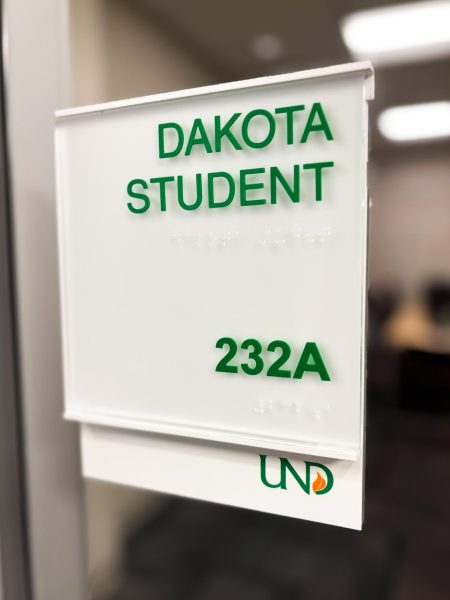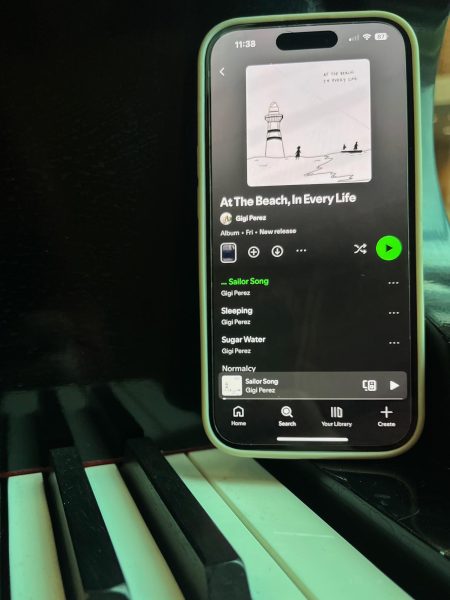The perception of positivity
Criticism can be a catalyst for change in the right lens of perception
After having many conversations on this campus with people who read this section, they have mentioned there appears to be a disconnect between the goal of these pieces and how they are read.
To many, my opinions appear to be rooted in negativity and anger rather than what they would rather see — a focus on positivity in the community.
I recently had one particular meeting which illuminated this issue, and I think now is as good a time as any to discuss the difference between negativity and criticism and the trappings that too much positivity can create.
At the start of this conversation we are going to look at what negativity is and what constructive criticism is. “Negativity” has many meanings, but the one that is relevant in this case is “lacking in constructiveness, helpfulness, optimism, cooperativeness, or the like,” according to dictionaryreference.com.
It is this type of commentary that must be avoided to move forward with any goal, whether it be to improve grades in classes or to discuss the issues that face our campus currently, yet it is often misconstrued to be a mere criticism.
Critique has merit. For example, when a teacher grades your paper, they are providing critique and criticism, and yet in the world of some who seem to want to promote positivity, they would do away with critique, and we would never have the chance to better ourselves as individuals or advance ourselves toward our goals.
Furthermore, in a well-written critique, those who are providing their input must make a conscious effort to highlight the parts of the endeavor that were successful, the parts that advanced the group toward accomplishing their mission, whatever it may be.
It is justified, and indeed understandable, to ridicule critics whose only mission is to punch down. That is to say those who only attack easy targets and talk only about failures as opposed to providing a balanced conversation, or take shots at people who do not have the respect in the community to fight back or respond to the criticism.
A classic example of this would be going after UND Parking Services. It doesn’t matter how anyone critiques parking, the entire campus will back that critique 100 percent, and due to the combative nature between students and parking, any discussion is merely riling up the mob, rather than having an educated conversation.
We must look at the intent of the critique and ask ourselves, “is it attempting to improve what is being critiqued for the future?”
If so, what are the possible solutions? A critique that meets this criteria is not designed to be negative for the sake of negativity, but rather from a desire to improve and help the community flourish in the future.
Now that we have discussed the merit of critique, we must look at the dangers those who advocate positivity over their perceived concept of negativity as it inherently create an unintended consequence of their argument. Positivity, when it comes to the press and critics is dangerous, presents an opportunity to validate and reward the success of individuals, but too much of it creates the trap of complacency.
If we come from the perspective that there is no such thing as a perfectly executed event, and if people consider forms of critique negative, then there is a logical disconnect wherein everyone knows the event is flawed. But nobody is able to talk about it or prescribe solutions to better the event, and therefore elevate the communities and stakeholders experience.
Furthermore, it creates a dangerous precedent where people are encouraged only to discuss and cherish success, rather than to focus on our shortcomings and improve them.
In a culture such as North Dakota, notorious for its “North Dakota nice,” we handicap people by not allowing them to reach their full potential, since nobody bothers to tell them they had flaws in the first place.
On a personal note, I would like to end this article by simply stating that I for one believe that every event that has been discussed by myself or others in recent memory doesn’t come from a desire to be negative (if I did, we would be going after dining and parking) but rather to shed light on problems and through critique allow for well intentioned people to serve us better.
Dave Owen is a staff writer for The Dakota Student. He can be reached at david.owen@my.und.edu






